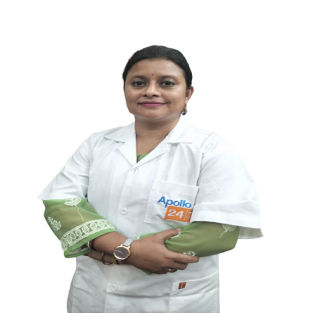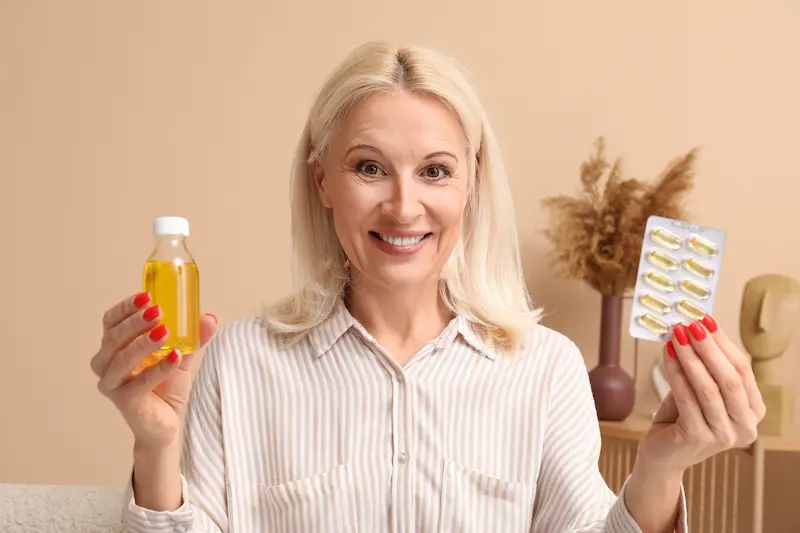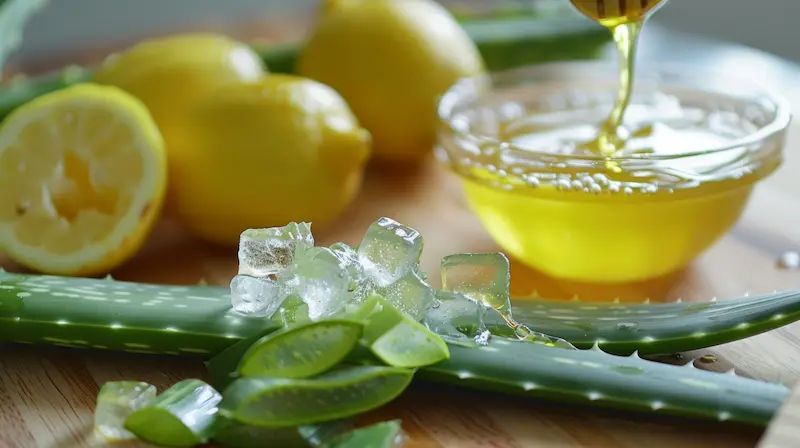Natural Home Remedies for Soft and Pink Lips
Looking for a pink lips remedy? Try lip care naturally with SPF, gentle moisture, and simple habits that heal and soften lips—backed by trusted medical sources.

Written by Dr. Vasanthasree Nair
Reviewed by Dr. Rohinipriyanka Pondugula MBBS
Last updated on 13th Jan, 2026

Introduction
Soft, comfortable lips don’t just look good—they help you eat, speak, and smile without pain. If you’ve searched for a pink lips remedy or how to do lip care naturally, you’re not alone. Dryness, sun, and everyday habits can make lips feel rough or appear dull. The good news: simple, safe routines can restore softness and help maintain your lips’ natural tone.
Important note: Natural lip color varies from person to person based on genetics and skin tone. The goal of any “pink lips remedy” is healthy, moisturized lips that reflect your own natural color—not to bleach or drastically change your lip pigmentation.
What affects lip color and softness?
- Lips are delicate. Unlike other skin, they have a very thin protective layer and no oil glands, so moisture escapes easily. These common factors can dry or irritate lips:
- Weather and environment: Cold, wind, sun, and dry indoor air pull moisture from lips.
- Lip licking or picking: Saliva evaporates quickly, making dryness worse.
- Irritating ingredients: Fragrances, flavors, menthol, camphor, eucalyptus, and some acids can sting, dry, or inflame lips.
- Sun exposure: UV rays can chap lips and, over time, increase the risk of sun-related lip damage.
- Tobacco and vaping: These can irritate lips, change their appearance, and raise the risk of lip and oral diseases.
- Allergies or skin conditions: Contact dermatitis, eczema, or yeast infection at the corners (angular cheilitis) can cause ongoing irritation.
- Medications: Some, such as isotretinoin (for acne) and certain chemo or vitamin A derivatives, commonly dry lips.
Pink lips remedy: safe, evidence-based home care
Focus on daily, gentle steps that protect, moisturize, and prevent irritation.
Moisturize often with a simple ointment
- Use a bland, fragrance-free lip ointment. Petrolatum (petroleum jelly), white petrolatum, mineral oil, lanolin, dimethicone, shea butter, and ceramides help seal in moisture and repair the skin barrier.
- Apply liberally in the morning, throughout the day, and especially before bed.
- If your lips are very sensitive, choose products labeled “fragrance-free” and “hypoallergenic.”
- Avoid flavors and tingling agents (menthol, camphor, eucalyptus) that can irritate.
Use SPF 30+ lip protection every day
- Choose a broad-spectrum lip balm with SPF 30 or higher to protect against UVA and UVB.
- Reapply at least every 2 hours when outdoors and after eating, drinking, or wiping your mouth.
- Sun protection helps prevent chapping now and reduces the risk of long-term sun damage to the lips.
Gentle exfoliation (only when lips are not cracked)
If your lips are smooth but a bit flaky, you can gently slough off loose skin using:
- A soft, damp washcloth or a very soft toothbrush, with light pressure, for 10–15 seconds.
- Follow immediately with a thick layer of ointment.
- Do not exfoliate if your lips are actively chapped, cracked, bleeding, or have cold sores—this can worsen irritation.
- Skip harsh DIY scrubs (coarse sugar/salt) and acidic juices (like lemon). They commonly sting and may inflame lips.
Humidify your space and hydrate
- Use a cool-mist humidifier in dry rooms, especially during winter or air-conditioned months.
- Drink water regularly. While no exact amount suits everyone, steady hydration supports overall skin function.
- Limit alcohol and very dry, heated air, which can dehydrate skin.
Mind your everyday habits
- Avoid licking, biting, or picking at lips. Keep an ointment handy to reapply when tempted.
- Breathe through your nose when possible; mouth breathing dries lips.
- Protect lips in the wind and cold with a scarf or mask.
- Quit smoking and avoid vaping nicotine. Beyond cosmetic effects, tobacco significantly harms oral and overall health. Seek support if needed.
Choose lip-safe ingredients
Look for:
- Moisturizers and barrier supporters: petroleum, mineral oil, dimethicone, ceramides, shea butter, beeswax, glycerin.
Try to avoid:
- Fragrance and flavors, menthol, camphor, eucalyptus, salicylic acid, and cinnamon derivatives—common irritants that can keep lips chapped.
Nutrition basics for healthy lips
- Aim for a balanced, varied diet with fruits, vegetables, whole grains, lean proteins, and healthy fats to support skin repair.
- If you frequently develop cracks at the corners of your mouth (angular cheilitis), discuss possible triggers with a clinician. Sometimes, yeast, ill-fitting dentures, drooling, or nutritional shortfalls (like iron or certain B vitamins) can contribute. Don’t self-diagnose—get evaluated for proper treatment.
- Avoid high-dose supplements unless advised by a healthcare professional.
Consult Top Specialists
What not to do in a pink lips remedy?
- Don’t use lemon juice, baking soda, toothpaste, or undiluted essential oils on lips. These are frequent irritants and can worsen dryness or discoloration.
- Avoid frequent or harsh scrubbing. Over-exfoliating damages the thin lip barrier.
- Don’t rely on tingling or flavored lip balms for moisture; they often contain ingredients that irritate lips over time.
- Don’t ignore sun protection. UV exposure is a major, preventable cause of lip damage.
When to see a healthcare professional?
Check in with a doctor or dermatologist if you notice:
- Persistent chapped lips that don’t improve after 2–3 weeks of gentle care and SPF.
- Severe cracking, bleeding, yellow crusting, or pain—possible infection or angular cheilitis.
- Itchy, swollen, or burning lips that worsen with certain products—possible contact allergy.
- Recurrent cold sores (blisters), which may need antiviral treatment.
- A scaly, white, or non-healing patch on the lip, especially the lower lip—possible actinic cheilitis (sun damage) that requires medical evaluation.
- Lip changes that begin after starting a new medication.
Lip care naturally: a simple daily routine
Morning
- Rinse lips with lukewarm water; pat dry.
- Apply a broad-spectrum SPF 30+ lip balm.
- If going outdoors, keep your SPF lip balm with you to reapply every 2 hours and after eating or drinking.
Daytime
- Reapply SPF lip balm often.
- If lips feel dry, add a layer of bland ointment on top to lock in moisture.
Evening
- Gently cleanse lips with lukewarm water; pat dry.
- Apply a thick layer of petrolatum or another simple, fragrance-free ointment before bed.
Weekly (optional)
- If lips are not cracked or sore, gently exfoliate once (soft washcloth or soft toothbrush for a few seconds), then apply ointment right away.
Realistic results and expectations
- Softness and comfort often improve within days when you stop irritants, moisturize often, and use SPF.
- Appearance changes are gradual. Protecting lips from the sun and quitting smoking can help your natural tone look more even over time.
- Remember: Lips come in many natural shades. The healthiest “pink lips remedy” is one that keeps your lips moisturized, protected, and comfortable.
Consult Top Specialists
Consult Top Specialists

Ms. Samapti Maity
Dietician
16 Years • MSc. (Clinical Nutrition & Dietitics), NDEP, Course in Maternal Infant Young Child Nutrition.Diploma in Sports Nutrition, Diploma in Diabetic educator, FODMAP Specialist
Kolkata
BIENETRE CLINIC, Kolkata

Dr. Chaithanya R
Internal Medicine Specialist Diabetologist
16 Years • MBBS, MD Internal Medicine, Fellowship in Diabetes(UK), CCEBDM(PHFI)
Bangalore
Apollo Clinic Bellandur, Bangalore
(75+ Patients)

Mr Aritra Khan
Dietician
16 Years • Clinical Dietitian Critical Care Nutritionist Diabetes Educator. e Academic Counselor & Examiner( Msc DFSM, IGNOU) PDFFM&CCN,Doctorate(PH&CN), FCN,PGDCN ,PGCDE, CCN, CRN, CCCN, CLHF, CPN
Kolkata
Samaritan Clinic, Kolkata
(250+ Patients)

Ms. Neelanjana J
Dietician
5 Years • Bsc., Msc. Nutrition and Dietetics specialised general weight management, PCOS/PCOD weight loss and Diabetes management. A clinical dietitian with 4+ year experience specializing in evidence-based, result-oriented nutrition therapy. I have extensive experience in weight loss, thyroid management, PCOD/PCOS, weight gain, and diabetes & prediabetes care. My approach is personalized, practical, and sustainable—focusing on helping individuals achieve long-term lifestyle change rather than quick fixes. I work closely with clients to understand their medical history, lifestyle, and goals, and then design customized diet plans that support hormonal balance, metabolic health, and overall wellbeing. My goal is to make nutrition simple, realistic, and effective—so you see measurable results and feel your healthiest self.Auther in Health benefits of jackfruit (Artocarpus heterophyllus Lam.) seeds: A review (2023) The Pharma Innovation Journal Co- Auther in Malnutrition in Women: A review (2023) The Pharma Innovation Journal. Highfield Level 3 in HACCP. Highfield Level 4 International Award in Food Safety Managment
Bengaluru
Apollo Clinic, JP nagar, Bengaluru

Ms. Malabika Datta
Dietician
17 Years • Msc. in Dietetics & Food Service Management
Kolkata
Dr Utsa Basu Clinic, Kolkata
(25+ Patients)
Consult Top Specialists

Ms. Samapti Maity
Dietician
16 Years • MSc. (Clinical Nutrition & Dietitics), NDEP, Course in Maternal Infant Young Child Nutrition.Diploma in Sports Nutrition, Diploma in Diabetic educator, FODMAP Specialist
Kolkata
BIENETRE CLINIC, Kolkata

Dr. Chaithanya R
Internal Medicine Specialist Diabetologist
16 Years • MBBS, MD Internal Medicine, Fellowship in Diabetes(UK), CCEBDM(PHFI)
Bangalore
Apollo Clinic Bellandur, Bangalore
(75+ Patients)

Mr Aritra Khan
Dietician
16 Years • Clinical Dietitian Critical Care Nutritionist Diabetes Educator. e Academic Counselor & Examiner( Msc DFSM, IGNOU) PDFFM&CCN,Doctorate(PH&CN), FCN,PGDCN ,PGCDE, CCN, CRN, CCCN, CLHF, CPN
Kolkata
Samaritan Clinic, Kolkata
(250+ Patients)

Ms. Neelanjana J
Dietician
5 Years • Bsc., Msc. Nutrition and Dietetics specialised general weight management, PCOS/PCOD weight loss and Diabetes management. A clinical dietitian with 4+ year experience specializing in evidence-based, result-oriented nutrition therapy. I have extensive experience in weight loss, thyroid management, PCOD/PCOS, weight gain, and diabetes & prediabetes care. My approach is personalized, practical, and sustainable—focusing on helping individuals achieve long-term lifestyle change rather than quick fixes. I work closely with clients to understand their medical history, lifestyle, and goals, and then design customized diet plans that support hormonal balance, metabolic health, and overall wellbeing. My goal is to make nutrition simple, realistic, and effective—so you see measurable results and feel your healthiest self.Auther in Health benefits of jackfruit (Artocarpus heterophyllus Lam.) seeds: A review (2023) The Pharma Innovation Journal Co- Auther in Malnutrition in Women: A review (2023) The Pharma Innovation Journal. Highfield Level 3 in HACCP. Highfield Level 4 International Award in Food Safety Managment
Bengaluru
Apollo Clinic, JP nagar, Bengaluru

Ms. Malabika Datta
Dietician
17 Years • Msc. in Dietetics & Food Service Management
Kolkata
Dr Utsa Basu Clinic, Kolkata
(25+ Patients)
More articles from Skin Care
Frequently Asked Questions
Can I lighten dark lips naturally?
Natural lip color varies widely and is influenced by genetics and skin tone. You can help your lips look their healthiest by moisturizing often, using SPF daily, and avoiding irritants and tobacco. If you notice a sudden or patchy change in color, see a healthcare professional.
How long will it take to see results?
With consistent moisturization and sun protection, many people notice softer lips within a few days to 1–2 weeks. Even tone from sun protection and healthy habits can take longer. Persistent dryness beyond 2–3 weeks deserves a medical check.
Are coconut oil or other natural oils good for lips?
Some people do well with simple oils (like coconut oil) or shea butter. Others may find plant oils irritating. If you use them, choose fragrance-free options and patch tests. Many dermatologists recommend ointments with petrolatum or dimethicone because they seal in moisture effectively.
What SPF is best for lips?
Use a broad-spectrum SPF 30 or higher lip balm. Reapply every 2 hours outdoors and after eating or drinking. Ingredients like zinc oxide, titanium dioxide, or avobenzone can provide reliable protection.
Why are my lips chapped even when I use lip balm?
Common reasons include irritating ingredients (fragrances, flavors, menthol, camphor), frequent lip licking, sun and wind, mouth breathing, and certain medications. Switch to a bland, fragrance-free ointment; use SPF daily; and avoid licking. If there’s no improvement in 2–3 weeks, see a dermatologist to check for allergy, infection, or other causes.




